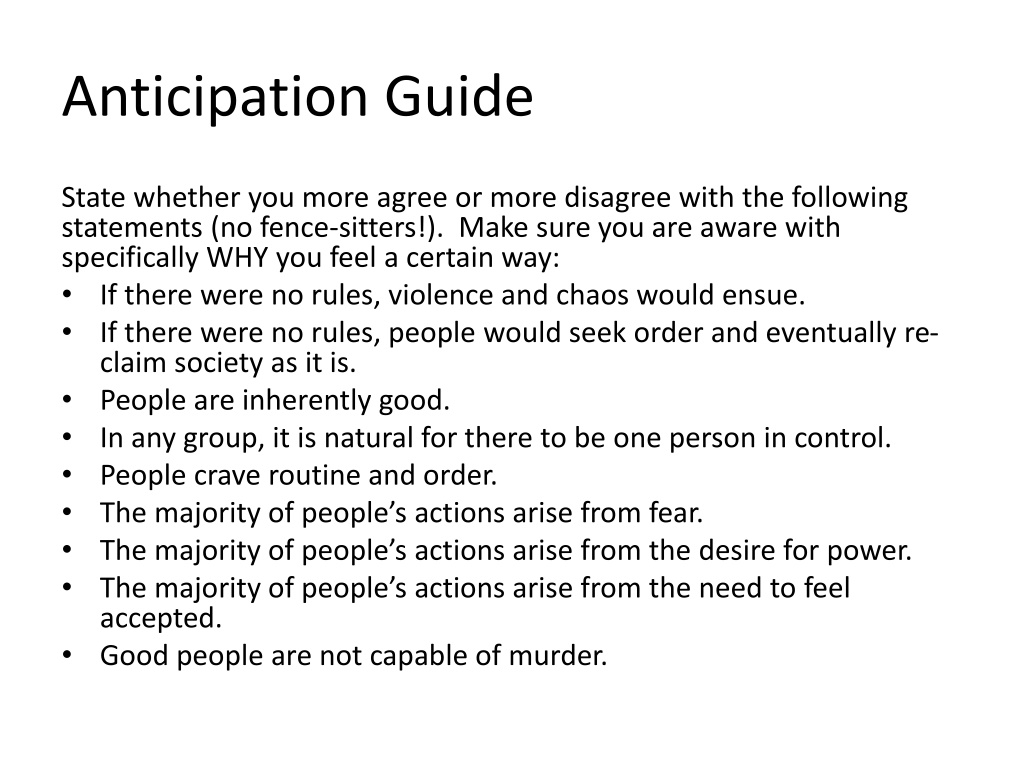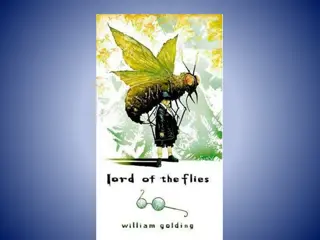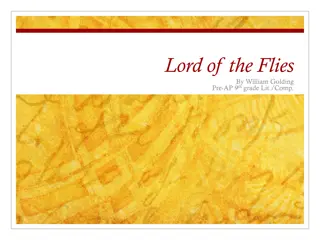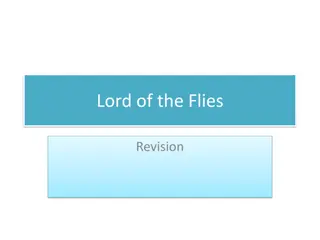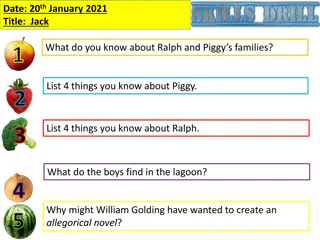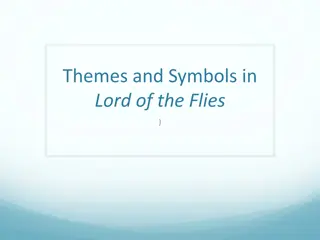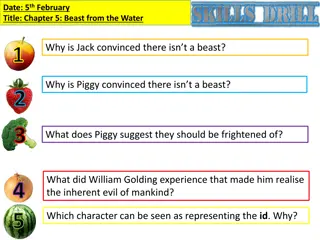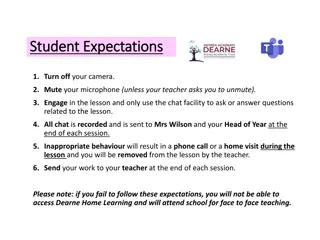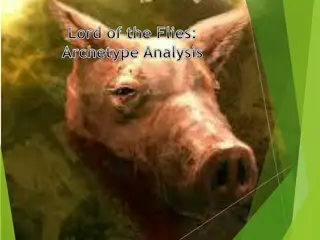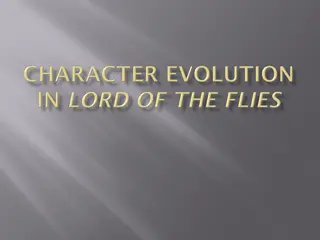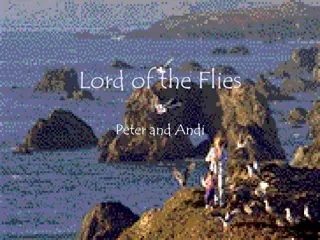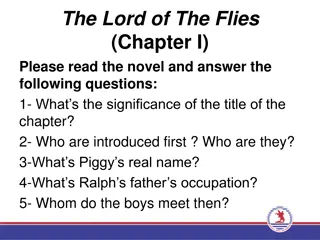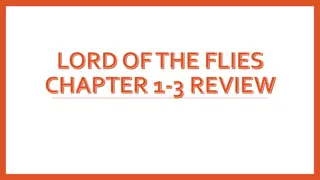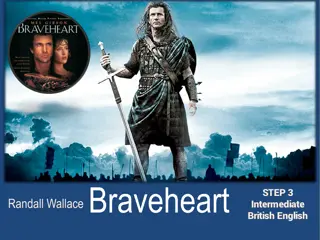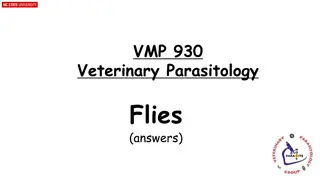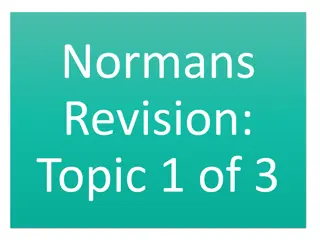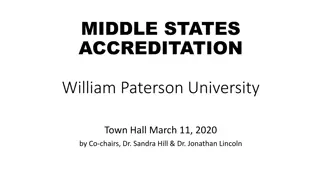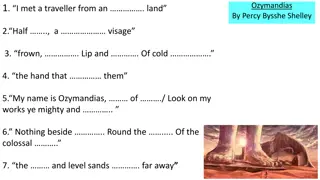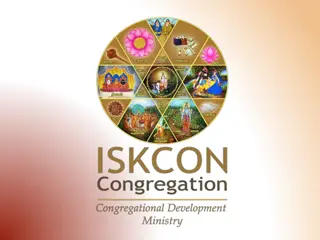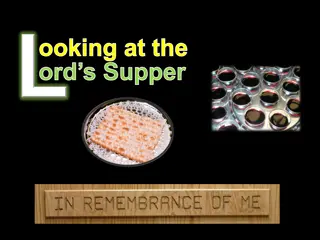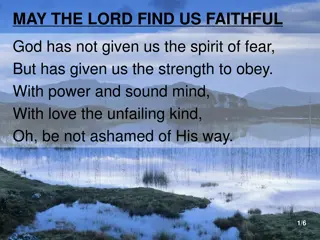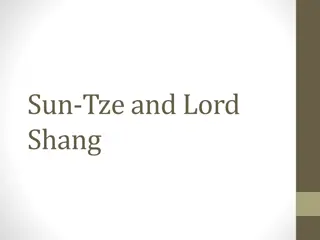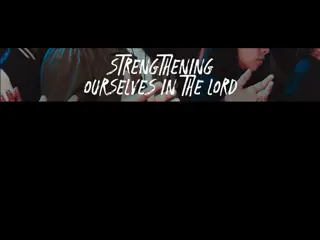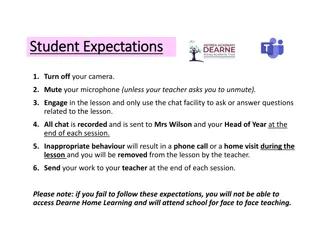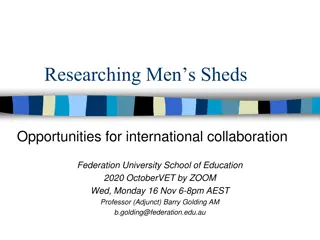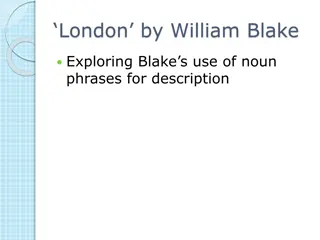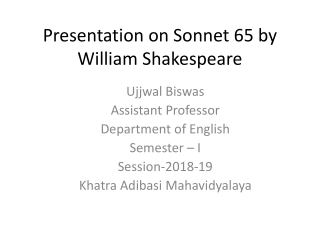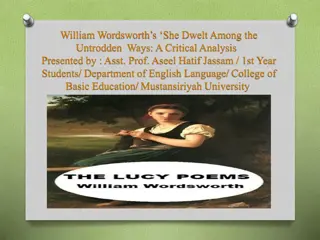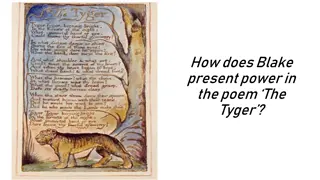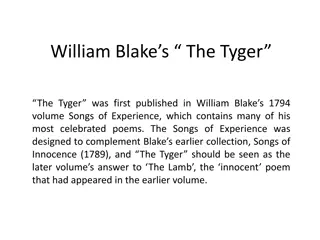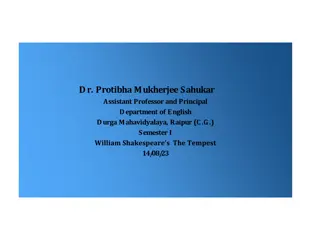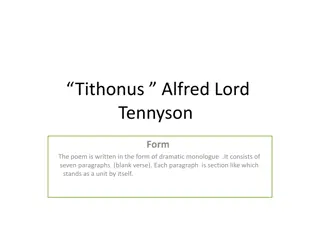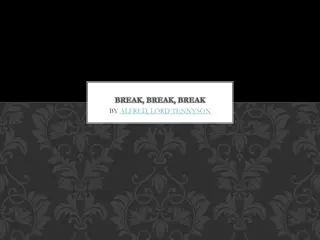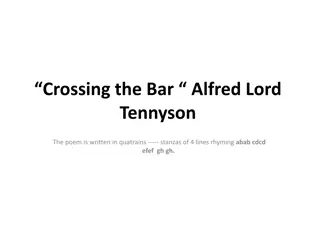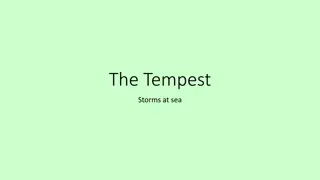Analysis of "Lord of the Flies" by William Golding
Delve into the allegorical masterpiece "Lord of the Flies" by William Golding, as it explores themes of human nature, society, and morality through a group of boys stranded on an island. Discover the stark commentary on the innate desires for good and evil, loss of innocence, and the consequences of unbridled human impulses in the absence of societal regulations.
Download Presentation

Please find below an Image/Link to download the presentation.
The content on the website is provided AS IS for your information and personal use only. It may not be sold, licensed, or shared on other websites without obtaining consent from the author. Download presentation by click this link. If you encounter any issues during the download, it is possible that the publisher has removed the file from their server.
E N D
Presentation Transcript
Anticipation Guide State whether you more agree or more disagree with the following statements (no fence-sitters!). Make sure you are aware with specifically WHY you feel a certain way: If there were no rules, violence and chaos would ensue. If there were no rules, people would seek order and eventually re- claim society as it is. People are inherently good. In any group, it is natural for there to be one person in control. People crave routine and order. The majority of people s actions arise from fear. The majority of people s actions arise from the desire for power. The majority of people s actions arise from the need to feel accepted. Good people are not capable of murder.
Across the line Go to the side corresponding to your beliefs on the topic. Try to follow what YOU believe even if the majority of people have opposing beliefs. Again, NO FENCE-SITTERS! Go with whether you more AGREE or more DISAGREE. We will discuss some of these when finished.
About William Golding Attended Oxford University, studying science and English Literature Joined the Royal Navy in 1940 and served in WWII Wrote Lord of the Flies in 1954 Won a Nobel Prize for Literature in 1983
Lord of the Flies It was simply what seemed sensible for me to write after the war when everyone was thanking God they weren t Nazis. I d seen enough to realize that every single one of us could be Nazis. -William Golding
About Lord of the Flies The novel is an allegory, a piece of literature in which the events and characters represent a larger, often political, idea. Represent political state of the world in the postwar period The novel is about a group of boys who are stranded on an island in the Pacific, probably during the 1950s (the actual year is unknown) Lord of the Flies serves as a commentary on the following major concepts and motifs (among others): The ability/inability to repress one s impulses so as to maintain the structure of a group How people behave when not under the regulations of society The loss of innocence The innate desire for good or evil
IMAGINE The war on terror has escalated its fighting throughout the eastern border of the United States. The adults feel that they must protect future generations. You and your classmates are being sent away via plane to save you from death in the case that we are bombed. You know some of the people on the plane but not all of them. Suddenly, the plane is struck and goes plummeting to the ground. Now you and others have emerged from the plane. You don t recognize your surroundings. There are no houses or buildings anywhere. Standing on the sand, all you can see are trees in front of you and ocean on all sides. What would be your initial reaction?
